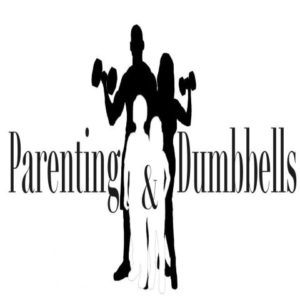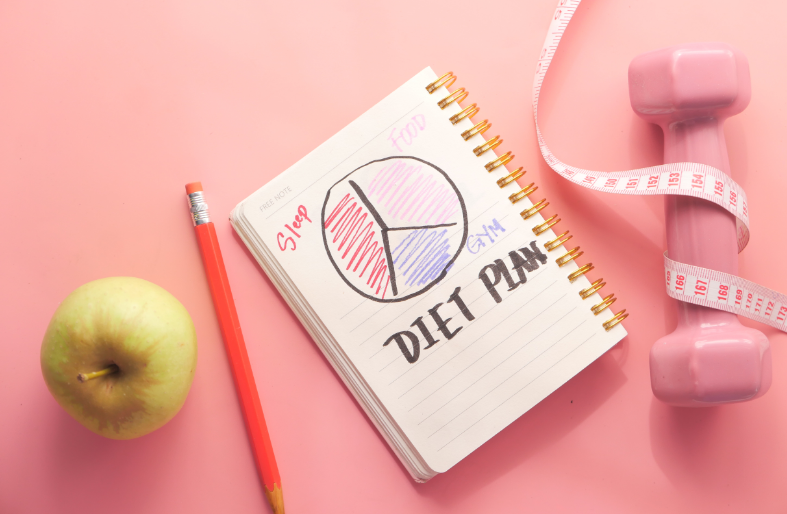We have learned the simple truth: to lose weight you must be in a calorie deficit.
It is actually quite simple. Eat less than what your body requires, and your body will compensate by using stored fat as energy.
Sometimes, however, you may believe you are doing everything right, eating in a “calorie deficit” and realize…you aren’t losing any weight.
Why am I not losing weight in a calorie deficit? Why am I not losing weight eating 1200 calories a day?
The simple truth is that, more than likely, you are NOT in the CORRECT calorie deficit for a variety of reasons. You may even be eating less than what your body requires, but due to the different coping mechanisms your body adapts to during weight loss, the weight on the scale is not going down.
And yes, it can be unsettling.
Before we get into the reasons on why you are not losing weight in a calorie deficit, and how to fix it, there are some questions that need to be answered.
If you are in a calorie deficit, you have already answered most of these questions for yourself, but for those who haven’t, let’s go over the following for a little refresher:
- What is a calorie deficit?
- Why is it needed to lose weight?
- How much of a calorie deficit do I need to lose weight?
- How do I create it?
- How do I measure my progress?
What is a calorie deficit?
A calorie is a unit of energy. It powers your body in the form of protein, carbohydrates, and fats. For a more detailed breakdown check our The Best Fat Loss Diet for parents.
A calorie deficit occurs when we eat less calories than what we burn on a daily basis. This creates a “deficit” in our energy storage for the day which forces our body to seek energy elsewhere to burn (fat and muscle).
Why is it needed to lose weight?
As noted above, when we short our bodies of our daily required calories to maintain our weight, the body will dip into our fat storages (first) to get energy, thus leading to weight loss or better yet, “fat loss”.
How much of calorie deficit do I need to lose weight?
This will depend on the individual and will depend on various factors such as
- Age
- Activity Level
- Diet
- Medical conditions
- Height
- Weight
In general, a healthy weight loss deficit would be around 500 calories a day from your “maintenance” calories to lose about 1-2lbs a week.
Your maintenance calories is the amount of calories your body would need to maintain its current weight. You will simply subtract 500 from your maintenance to get your “deficit” number.
Again, the way to figure out this number is explained in our The Best Fat Loss Diet for Parents.
How do I create a calorie deficit?
A calorie deficit can be created by eating less. It can be created by increasing your activity level.
Or it can be done through a combination of both (increasing your activity level and eating less).
How do I measure my progress?
Weigh yourself WEEKLY not daily and make sure your scale is working properly.
Most people make the mistake of weighing themselves everyday. That does not tell the story.
Your body weight fluctuates daily based on what you ate the day before, your sleep, how much water you’re retaining etc.
To get the most accurate weight on the scale, follow these tips:
- Weigh yourself once a week on the same day of the week.
- Weigh yourself first thing in the morning.
- Make sure you use the bathroom before you weigh yourself.
- Weigh yourself on a completely empty stomach.
- Weigh yourself a couple of times and in a couple of different places to ensure the scale is actually working.
Now that we have answered some basic questions and cleared the path, let’s get into why you might not be losing weight in a calorie deficit.
REASON#1 You have plateaued.
When you first start a weight loss regimen and a calorie deficit, you will drop pounds fast. It will seem the fat is melting off your body and your on the fast lane to a six pack of abs!
Yes yes…if it were only that easy!
The reason this is happening is because your body is adjusting to the lower food intake, and it is also releasing a lot of water.
This means, most of that weight you are rapidly losing is water weight. For every gram of carbohydrate you eat, your body stores water with it to use the carb as energy. When you reduce the amount of food you eat, you reduce the amount of water your body holds.
The water releases —–> the weight on the scale goes down.
Now, hold on champ!
That is just water weight.
Your body will now start losing actual weight/fat of about 1-2lbs per week (If you are in a proper calorie deficit of about 500 calories below your maintenance).
But at some point, the weight loss will stop. This is the PLATEAU.
—->SOLUTION: REDUCE THE CALORIES
You see, if you were, say, 200lbs and were eating 2,300 calories to lose weight, when you get down to 180lbs you will need to eat less.
At 180lbs, your body is going to need less than 2,300 calories because it is now using less energy.
This means you now must reduce the amount of calories you are eating to continue losing weight OR increase your activity level.
REASON #2 YOU ARE RETAINING EXCESS WATER
Your scale might be budging very slowly because your body is retaining a lot of water.
While this shouldn’t masquerade your weight on the scale week after week, it can lead to you thinking you gained or didn’t lose weight from one week to the next.
Some of the reasons water retention happens include:
- Menstrual Cycle
- Stress
- Eating high sodium foods
- Lack of sleep
- Exercise
- Illness (rare)
However, the most COMMON reason for water retention, and what we believe is the top culprit is…believe it or not, not drinking enough water!
Yes. If you don’t drink enough water, your body naturally goes into a sort of “panic” mode and starts conserving the water you do have to reuse. It will stop excreting that water leading to that “bloat” or extra water weight that you see on the scale.
Water is also needed to lose fat. It has been shown in studies to decrease appetite and facilitate the loss of fat.
So the solution should seem pretty simple here…
—->SOLUTION: DRINK ENOUGH WATER
When you drink enough water, your body regularly starts excreting that water because it knows it has plenty coming in.
How much water should you drink?
Really, the amount of water you drink depends on a lot of factors based on individual needs. Everything from how much you exercise, your weight, age, etc matter. However, there is no set guideline according to the CDC.
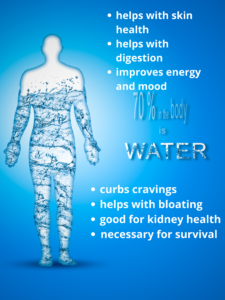
Our golden rule is definitely more than the standard “8 cups a day”. A good way to measure if you are drinking enough water is the color of your urine.
A clear, light yellowish urine is what you want to aim for. Here is an awesome chart showing the different colors your urine may produce and what they mean.
People really underestimate the power of water consumption. The benefits of water are endless.
REASON #3 YOU ARE STRESSED
Weight loss is pretty simple, BUT many internal factors can complicate it.
Stress is a big one.
When we are stressed, whether at home, at work, with our families, friends or co-workers, our bodies respond by releasing the hormone cortisol. In basic terminology, cortisol is our bodies “flight or fight” hormone but it can also prime your body to conserve energy and store fat instead of “burning” it.
Besides helping in the storage of energy (fat), it can lead to muscle breakdown and an increase in our appetite for unhealthy foods such as sugars and sweets. This can cause you to overeat and have more “binging” spells which will hamper your weight loss efforts.
A lack of sleep can also trigger cortisol as well as leptin. Leptin helps regulate your appetite. Lack of sleep will cause leptin levels to rise making you hungrier when you probably don’t need to eat.
Too many times after a bad night of sleep, I have spent the day binging and feeling “hungrier” than usual.
REASON #4 YOU AREN’T CONSISTENT
When you are on a weight loss journey, you must be consistent.
Our rule of thumb is to be consistent for AT LEAST SIX DAYS and “holding the line” on your daily food intake before considering a cheat meal or “treat”.
If you are following a diet for 2 or 3 days and then binging or cheating for the next 2 days, you are not going to lose weight. You must be consistent and follow the plan.
REASON #5 YOU ARE OVEREATING
You may think you are eating 2000 calories, but sneaking in that oreo and not counting it, COUNTS.
Sneaking in a few peanuts and not counting it, COUNTS.
Adding a little extra cream and sugar in your coffee, COUNTS.
If you go around adding little bites here and there, those 2,000 calories can easily turn into 2,500 or more.
When tracking your food intake everything must be accounted for.
You also need to properly measure food. You need to read nutrition labels and when cooking at home USE A FOOD SCALE.
Again, we are going to assume you already know most of these basics, since you came here to figure out why you aren’t losing weight, not HOW TO LOSE WEIGHT, but…a small refresher never hurts
Here are some guidelines/tips to follow when tracking your food intake:
- You need a food scale! We cannot stress this enough.
- Weigh grains like potatoes, rice and pasta DRY according to instructions on the package. Usually the weight from dry to cooked, for rice and pasta, will be:
-1/4 cup rice dry = about one cup cooked
-2oz Pasta dry = about one cup cooked
- Weigh all meats RAW after they are defrosted. That is the meat(s) true weight. You can weigh it after, but keep in mind the following:
-Meat loses approximately an ounce for every 4 ounces. Example:
-4 ounce raw = 3-3.5 ounce cooked
-8 ounce raw = 6-6.5 ounce cooked etc
- Whatever way you start weighing food, stay consistent throughout. If you weight 6 oz of cooked chicken as 8 oz of raw chicken, then don’t make it 6.5oz cooked chicken= 8oz raw next time.
- If you are eating out, eat out from places who post their nutritional content (calories, macros etc) in apps like myfitness pal or on their menu.
REASON #6 YOU ARE UNDEREATING
What? You need to eat more to lose weight?
In some cases, YES.
I will give my personal anecdote here.
In 2013 I was a chubby 216lbs.
I always lifted weights, and I knew I had muscle underneath that mess SOMEWHERE, but my diet was all over the place and I was simply overeating.
I knew I needed a change and embarked on weight loss journey using the principles we lay out in The Best Fat Loss Diet for Parents.
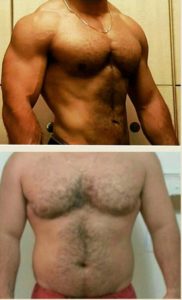
With hard work and consistency I manage to lose 50LBS !!! It took a couple of years because I was deliberately slow and methodical. I still enjoyed my cheat meals and, sometimes, cheat days on special occasions.
I got down to 165-166lbs and I was looking 100x better but I couldnt drop more weight, I was “stuck”.
On the picture above I was eating 1600 calories, weight lifting 6x a day and doing cardio and I could not get below 166lbs.
I decided to enter a physique competition and hired a world class coach. I learned ALOT.
He saw what I was eating and upped my calories from 1600 to 2300 calories!!
700 extra calories!!!
I was skeptical, but guess what happened the next couple of weeks?
I started dropping weight again, and eventually got down to 4% bodyfat. I was competition ready while barely going below 2,000 calories, and still eating a decent amount of carbs.
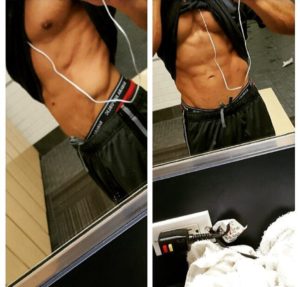
Why did this happen?
Because your body needs food to lose fat!
There are very few scenarios and very few people, regardless of your height, weight and activity level, that should be eating 1200 calories to lose weight.
At this low calorie level for, most people, your body is simply trying to survive and conserve energy, not burn any more fat.
—–>SOLUTION: EAT MORE FOOD
Always start eating as much as possible when losing weight, and gradually decrease food and/or increase activity as you go.
If you are eating extremely low calories and not losing weight, try upping your calories by a couple hundred and see if that starts your weight loss back up.
If you need help in executing this strategy or have questions please feel free to contact us. We’d love to hear from you. Parentinganddumbbells@gmail.com
These are our 6 tops reasons and solutions on why, even though your in a “calorie deficit” you aren’t losing weight.
But wait…there must be another reason?
What about my slow metabolism? How do I get a fast metabolism?
Notice we didn’t include “metabolism” in the reasons why you aren’t losing weight.
Your “metabolism” is the process by which your body burns and stores energy.
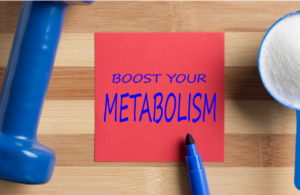
The common perception is that a “fast metabolism” leads you to burn more calories daily versus a “slow metabolism” which makes losing weight harder.
Yes, people’s metabolisms are different. But the rate in which a metabolism slows from your younger years into adulthood, and into middle life, is very small. So small that it does not play a major role in why you can’t lose weight.
And no, stop looking at ways to “speed up my metabolism”. It won’t make a worthwhile difference.
Articles all over the web will tell you to increase your protein intake because protein takes more energy for your body to convert and thus makes your metabolism “work harder”.
Protein does take more energy for your body to convert, but again, the difference is so miniscule that it should not be a factor or a way for you to “speed up your metabolism”.
Research has found that our metabolism is relatively stable between our 20’s all the way until our 50’s, and even then, it slows down very little.
Regardless of what you may hear, your metabolism is not the reason you aren’t losing weight and eating more protein isn’t going to make it faster.
If your a healthy person, your adherence and execution of your diet and workout regimen is the reason and only reason why or why you won’t lose weight.
